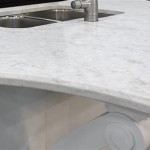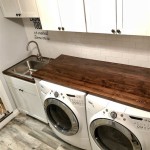Commercial Countertop Ice Cream Machines: A Comprehensive Guide
Commercial countertop ice cream machines represent a significant asset for businesses aiming to offer freshly made ice cream, frozen yogurt, or other frozen desserts directly to their customers. These machines are designed for ease of use, space efficiency, and consistent performance, making them suitable for a variety of settings, from small cafes and restaurants to larger ice cream parlors and catering operations. Selecting the right machine requires careful consideration of several factors, including production capacity, features, maintenance requirements, and budget.
Unlike their larger, floor-standing counterparts, countertop ice cream machines are engineered for smaller spaces and lighter production volumes. This makes them ideal for businesses that want to experiment with offering soft serve or frozen treats without a major upfront investment or the need for extensive floor space. The compact design also simplifies installation and mobility, allowing for easy relocation within the business premises as needed.
Key Point 1: Understanding Different Types of Countertop Ice Cream Machines
The market offers a variety of countertop ice cream machines, each with its own set of operating principles and suitability for specific applications. The primary types include soft serve machines, frozen yogurt machines, and batch freezers. Understanding the nuances of each type is crucial for making an informed purchasing decision.
Soft Serve Machines: These machines are designed to produce soft, creamy ice cream or frozen yogurt with a characteristic smooth texture. They operate continuously, churning and freezing the ice cream mix as it is dispensed. Soft serve machines typically incorporate an air pump that injects air into the mixture, creating a lighter, fluffier product. This air incorporation, known as overrun, also increases the volume of the final product. Soft serve machines are popular in fast-food restaurants, convenience stores, and ice cream stands due to their ability to quickly dispense servings on demand. They often feature multiple flavor options and can be equipped with various attachments for creating unique swirl patterns and toppings.
Frozen Yogurt Machines: Similar in design to soft serve machines, frozen yogurt machines are specifically calibrated to handle the different viscosity and composition of frozen yogurt mixes. They often feature more precise temperature controls to ensure optimal freezing and texture of the yogurt. Frozen yogurt machines are common in dedicated frozen yogurt shops and health-conscious establishments. The machines are designed to accommodate the slightly more acidic nature of yogurt, using materials that are resistant to corrosion and maintaining a hygienic environment for the product.
Batch Freezers: Unlike continuous dispensing machines, batch freezers produce ice cream in batches. These machines freeze a specific quantity of ice cream mix in a cylindrical freezing chamber, using rotating blades or scrapers to prevent ice crystal formation and ensure a smooth, consistent texture. Batch freezers are favored by artisanal ice cream shops and gelato makers who prioritize high-quality, small-batch production. They offer greater control over the freezing process, allowing for the incorporation of various ingredients and flavors. Batch freezers are typically more expensive than soft serve or frozen yogurt machines, but they offer superior quality and flexibility in product creation.
Furthermore, within each type, there are variations based on features like hopper capacity, compressor size, and control system complexity. Some machines include self-pasteurization features, which heat-treat the ice cream mix to kill bacteria and extend its shelf life. Others offer programmable settings for precise control over overrun and consistency. Choosing the right type of machine will depend on the specific needs and production goals of the business.
Key Point 2: Factors to Consider When Selecting a Countertop Ice Cream Machine
Beyond the type of machine, several other factors influence the selection process. These include production capacity, machine features, ease of maintenance, and cost. Each factor must be carefully evaluated to ensure the chosen machine meets the business's specific requirements.
Production Capacity: The machine's production capacity should align with the expected demand. Countertop ice cream machines typically have a lower production capacity than floor-standing models, but the capacity can vary significantly from machine to machine. Consider the average number of servings expected per day or hour, as well as peak demand periods. Overestimating capacity can lead to unnecessary expense, while underestimating capacity can result in long wait times and dissatisfied customers. Production capacity is typically expressed in terms of gallons or quarts per hour, and should be carefully considered in relation to the machine's hopper capacity.
Machine Features: Various features enhance the functionality and usability of countertop ice cream machines. These include digital displays, adjustable temperature controls, self-pasteurization systems, and automatic cleaning cycles. Digital displays provide real-time information on machine status and temperature, while adjustable temperature controls allow for fine-tuning of the freezing process. Self-pasteurization systems reduce the risk of bacterial contamination, and automatic cleaning cycles simplify maintenance and sanitation. Machines with pre-programmed settings can eliminate guesswork and ensure consistent results. The inclusion of safety features like overload protection and low-mix level sensors is also crucial.
Ease of Maintenance: Regular maintenance is essential for ensuring the longevity and optimal performance of a countertop ice cream machine. Consider the ease of cleaning and disassembly, as well as the availability of replacement parts. Machines with stainless steel construction are generally easier to clean and more resistant to corrosion. Look for models with readily accessible components for routine maintenance tasks. Some manufacturers offer comprehensive maintenance programs or service contracts to provide ongoing support and prevent breakdowns. A detailed understanding of the machine’s maintenance requirements is vital to minimize downtime and ensure consistent performance.
Cost: The initial purchase price is an important consideration, but it should not be the sole determining factor. Consider the total cost of ownership, including energy consumption, maintenance costs, and the cost of supplies. Higher-priced machines may offer better energy efficiency, lower maintenance requirements, and longer lifespans, ultimately resulting in lower long-term costs. Explore different financing options and consider the potential return on investment. Price also needs to be considered against the quality and durability of the components used in the machine.
Power Requirements: Countertop ice cream machines require a dedicated electrical circuit. Ensure the business electrical system meets the power requirements of the chosen machine. Overloading the circuit can lead to equipment damage and safety hazards. Review the machine's voltage and amperage requirements and consult with a qualified electrician if necessary. Ignoring this aspect can lead to operational failures and potentially dangerous situations.
Key Point 3: Maintenance and Sanitation of Countertop Ice Cream Machines
Proper maintenance and sanitation are critical for maintaining the quality and safety of ice cream produced in a countertop machine. Regular cleaning and disinfection prevent bacterial growth and ensure compliance with health regulations. Neglecting maintenance can lead to inconsistent product quality, equipment malfunctions, and potential health risks.
Daily Cleaning: At the end of each day, the machine should be thoroughly cleaned to remove any remaining ice cream mix. This typically involves disassembling the machine's components, such as the dispensing heads, dasher, and freezing cylinder, and washing them with warm soapy water. Use a food-grade sanitizer to disinfect all parts before reassembling the machine. Following the manufacturer's cleaning instructions is essential, as some components may require special cleaning solutions or procedures. Detailed cleaning logs should be maintained to ensure adherence to hygiene standards.
Regular Sanitation: In addition to daily cleaning, the machine should undergo regular sanitation to eliminate any remaining bacteria. This may involve using a chemical sanitizer or a heat-based pasteurization cycle, depending on the machine's features. Follow the manufacturer’s recommendations for sanitation frequency and procedures. Ensuring that all cleaning and sanitation products are food-safe and approved for use with ice cream machines is crucial.
Preventative Maintenance: Scheduled preventative maintenance can help prevent breakdowns and extend the machine's lifespan. This may include lubricating moving parts, inspecting seals and gaskets, and checking the refrigerant levels. Some manufacturers offer maintenance contracts that provide regular inspections and repairs performed by qualified technicians. Adhering to a proactive maintenance schedule minimizes downtime and ensures consistent performance.
Record Keeping: Maintaining accurate records of all cleaning, sanitation, and maintenance activities is essential for tracking compliance with health regulations and identifying potential problems. Records should include the date and time of each activity, the name of the person performing the activity, and any observations or issues encountered. These records can also be used to identify trends in maintenance needs and predict potential equipment failures.
Training: All employees who operate and maintain the countertop ice cream machine should receive proper training on cleaning, sanitation, and maintenance procedures. Training should cover the importance of hygiene, the correct use of cleaning and sanitizing products, and the safe operation of the machine. Regular refresher training can help reinforce best practices and ensure that employees stay up-to-date on the latest procedures. Proper training is an investment that pays off in improved product quality, reduced downtime, and enhanced food safety.
In conclusion, selecting and maintaining a commercial countertop ice cream machine involves a thorough understanding of various factors, from the different types of machines available to the essential aspects of maintenance and sanitation. By carefully considering these factors, businesses can choose a machine that meets their specific needs and ensures the production of high-quality, safe, and delicious frozen desserts.

Countertop Soft Serve Ice Cream Maker 22 30l H 2350w Frozen Yogurt Machine Vevor

Bentism Ice Cream Maker Soft Machine Single Flavor Countertop

Saniserv Df200 Durafreeze 7 Qt Countertop Soft Serve Ice Cream Machine With 1 Hopper 115v

Spaceman 6236a C Countertop Soft Serve Ice Cream Machine With Pressurized Air Pump 1 Hopper And Dispenser 208 230v

Vevor Ice Cream Machine 10 15l H Yield 1000w Countertop Soft Serve Maker With 4l Hopper 1 6l Cylinder Touch Screen Puffing Shortage

Vevor Ice Cream Maker 22 30l H Yield 2200w Countertop Soft Serve Machine New

Vevor Ice Cream Machine Pre Cooled Countertop Soft Serve Makers

The Best Ice Cream Machine Cuisinart V Sage Breville Youtube

Mix It In Soft Serve Ice Cream Maker

Reviews For Vevor Ice Cream Maker Machine 3 5 Qt Silver 1800 Watt Flavor Countertop Soft Serve 2 X 4 L Hopper Pg 1 The Home
See Also








